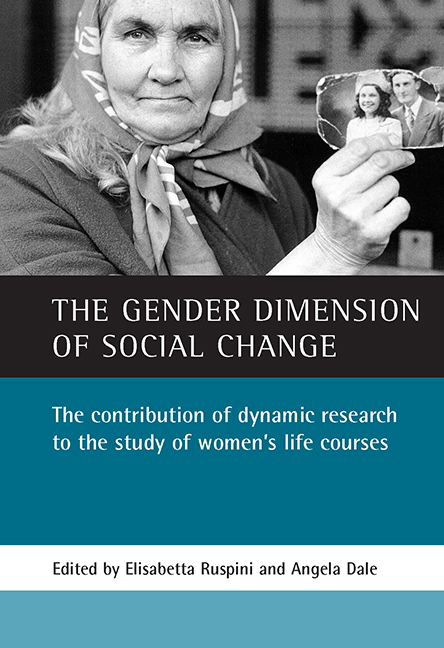 The Gender Dimension of Social Change
The Gender Dimension of Social Change five - The financial consequences of relationship dissolution for women in Western Europe
Published online by Cambridge University Press: 20 January 2022
Summary
Introduction
The main focus of this chapter is the financial consequences of relationship dissolution for women. We link cross-national variations to the types of welfare regimes in the countries of the EU using data from the European Community Household Panel (ECHP).
The outline of the chapter is as follows. We start with a review of the literature concerning the financial consequences of family breakdown, with special attention to the situation of the women involved. Next, we try to link the financial consequences of relationship dissolution to the sources of economic independence available to women – access to the labour market and the availability of welfare transfers – in the different welfare regimes. The literature suggests the existence of four ‘worlds of welfare’ in the EU: the social-democratic cluster, the conservative-corporatist countries, the liberal cluster and the Southern European countries. We test the validity of this typology by adding some additional indicators referring to the sources of economic independence available to women experiencing relationship dissolution. We then go on to the actual analysis, limiting ourselves to five countries: Denmark, the UK, Belgium, Germany and Italy. The choice of countries is based on their different position in our welfare regime typology, with Belgium and Germany representing substantial variation within the continental cluster. We conclude the chapter with a discussion of the results.
There are two main advantages of using longitudinal panel data for this analysis. Firstly, panel data provide us with a picture of the actual ‘living situation’ of the individual respondents and how they change. With the growing number of consensual unions and the rising number of children born out of wedlock, it is clear that the analysis of relationship dissolution needs to take into account the growing number of cohabitation dissolutions. The second advantage of using longitudinal panel data is that we can evaluate the financial implications for all women experiencing the event during the period covered by the study, irrespective of their subsequent relationships, rather than just the subgroup of women who have experienced a family breakdown and are currently single (see Chapter One on longitudinal designs for details).
- Type
- Chapter
- Information
- The Gender Dimension of Social ChangeThe Contribution of Dynamic Research to the Study of Women's Life Courses, pp. 81 - 110Publisher: Bristol University PressPrint publication year: 2002


